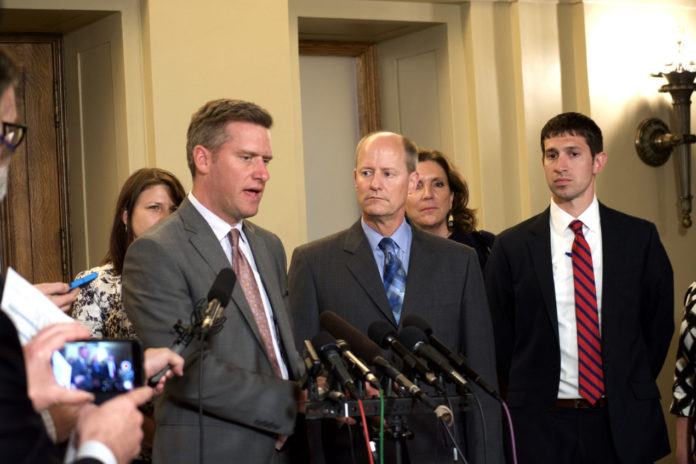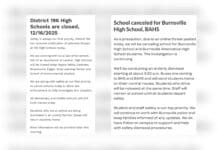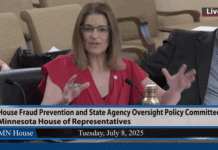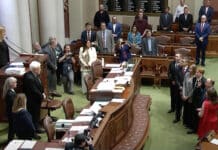
ST. PAUL, Minn. — Legal teams for Gov. Mark Dayton and the Legislature pled their cases before Chief Judge John H. Guthmann in Ramsey County Monday morning.
Dayton made the decision to line-item veto appropriations from the budget that would fund both the House and the Senate for the next biennium.
As reported by Alpha News, Dayton, upset with a poison pill provision regarding the tax bill, vetoed funding for the legislature stating:
“Because of your actions, which attempts to restrict my executive power, I am left with only the following means to raise my strong objections to your tax bill, which favors wealthy individuals, large corporations, and moneyed special interests at the expense of the State of Minnesota’s fiscal stability in the years ahead.
“Thus, I am line-item vetoing the appropriations for the House and Senate in FY 18/19 and FY 20/21. Your job has not been satisfactorily completed, so I am calling on you to finish your work.”
In court, the legislature’s attorney, Douglas A. Kelley, of Kelley, Wolter, & Scott made a simple argument — “We aren’t saying the line item veto is unconstitutional, but the way it was used is,” Kelley told the judge.
While Kelley conceded that the line-item veto is a power granted and protected under the separation of powers clause in the Minnesota Constitution, he made clear that the line-item veto, as written in the 1878 amendment, must have an objection attached to it.
“You must be opposed to something,” Kelley told the Judge.
“I think the governor has made his objection clear,” Guthmann replied to Kelley. However, Kelley notes that the governor did not provide an objection to the thing he vetoed, rather objection to other pieces of legislation that were not related to his veto.
Dayton’s attorney, former Minnesota Supreme Court Justice Sam Hanson argued that the legislature still has funding.
“You don’t have a constitutional right to appropriation, but you do to funding,” Hanson said. “The governor has done nothing wrong.”
Hanson argued that the legislature could go to court and ask the courts to grant them emergency funding so they could perform their critical core function, which is different than appropriation.
Guthmann told both parties that “the legislature has the right to legislate and the governor does not,” in response to discussion as to whether the governor could hold another branch hostage by withholding their funding.
The governor’s counsel did not offer comment after, but Speaker Kurt Daudt said, “we feel very optimistic that we can get the funding reinstated.”
Both sides have asked for accelerated review of the case as the Minnesota’s current fiscal year ends on June 30, with the new year kicking in on July 1.










